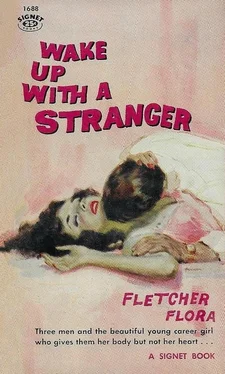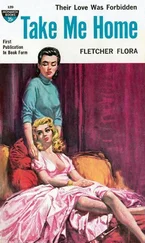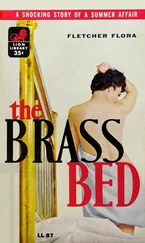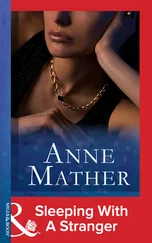It was necessary and very difficult, he thought, to achieve the right tone. He did not want to be tedious, but neither did he want to be excessively curt, which might be interpreted as a sign of anger or accusation. It seemed best on the whole to write merely what he had been thinking, that he was sorry for what he had done and grateful for what she had given, and so he wrote this as simply as he could on a sheet of paper. Then he folded the paper and put it into an envelope and wrote Donna’s name on the outside of the envelope. Leaving the envelope on the desk, he turned off the light and went back to the chair at the window and sat down and looked out at the pines on the slope. But now, after the writing of the note, he was beset by impatience that developed from a feeling that he had reached a point of completion, that there was nothing more of consequence to do or see or think, and that he was only wasting time inexcusably. The house around him seemed very quiet, and even as he sat and listened to the silence, it was broken by the sound of footsteps in the hall and a sudden knocking on his door. He turned his head and looked over his shoulder toward the door, but otherwise he did not move, and in a few seconds the knocking was repeated, and he still did not move or speak. He knew very well that the knocker was the other master who lived in the house, a fellow named Calkins. It was dinner time, and Calkins was starting up the hill to the dining room, and he wanted to know if Enos cared to go with him — and Enos didn’t. After the second knocking, the footsteps receded in the hall and died on the stairs, and shortly thereafter, looking out the window again, Enos could see the figure of the master ascending the darkening slope. It was then, indeed, time to end delay.
Getting up, he removed his coat and tie and rolled the sleeves of his white shirt above his elbows. He did this in a leisurely way, folding up the sleeves neatly, as if there were some sort of pleasure in the simple act. Afterward, he walked across the room, which was now quite dark, to the dresser. From the top drawer of the dresser he took his safety razor, a small gold instrument which had been given to him as a gift, at Christmas or a birthday or some time, by someone he could not exactly remember, his father or mother, a cousin or someone. Carrying the razor, he went out into the hall and down to the bathroom and inside. He locked the door behind him and snapped on the light and laid the razor on the lavatory and turned on the water in the tub and sat quietly on the commode until the tub was almost full. Then he turned off the water and removed the bright double-edged blade from the razor and stood for several minutes looking at the tub and thinking.
He was not concerned about pain, for he remembered from the first time, the abortive time, that there was very little. Primarily, he wondered about the best position to assume, and he wished that there were a low stool available so that he could sit comfortably. A kneeling position seemed to be the only one that would serve, and so he got down on his knees beside the tub. At the same time, without being aware that he was doing it, he began to whistle the pleasant little tune again. Kneeling and whistling, he submerged both forearms in the water with the palm of his left hand turned up and the palm of his right hand turned down. With the small blade in his right hand, he opened the artery in his left wrist. And as he remembered it from the time before, there was only the slightest burning sensation.
A thin red ribbon rose in the water from his wrist and diffused and darkened the water around, and the water grew slowly darker and darker, and the darkness spread from the water over everything, and he died kneeling in the darkness.
At five-thirty, Tyler called.
“I’m relieved to find you still there,” he said. “I was afraid you might have gone.”
“No, I’m still working,” Donna said. “I’ll be here for at least another hour.”
“Have you had a good day?”
“Yes. Everything has gone well. I’m looking forward to seeing you tonight, of course.”
“Well, that’s what I’m calling about. Something has developed to prevent my coming. It’s a nuisance, I know, but I simply can’t avoid it.”
“I’m sorry.”
He was silent for a moment, and she could hear faintly in the background the lilting sound of music — strings and brass and reeds forming the light and perishable pattern of a popular tune. She listened to the tune and liked it and was able to name it. Lisbon Antigua. A jukebox. She wondered if he was calling from the small bar to which she had first gone to meet him and where she still frequently met him. She was sure that he was there, and she could suddenly see and feel the place as truly as if she were there, and she wished that she were. Without forewarning, with the faint and perishable tune on the wire between them, it was quite abruptly an instant of crisis, a point from which her life would move inexorably one way or another, and she felt in the instant a surge of panic. He was calling to put an end to things. Already, she was certain, he had simply gone away, leaving the wire open to the inconsequential tune as a kind of commentary on the inconsequential affair he had initiated and tolerated and was now ending, for his own reasons, in this contemptuous manner.
“Are you there?” she said.
“Yes,” he said, “I’m here.”
“Are you at our bar?”
“Yes. How did you know?”
“I can hear music. Lisbon Antigua.”
“Oh. I see. There’s a fellow here who seems to like it. He insists on playing it over and over. Would you like me to explain why I can’t come tonight?”
“If you want to.”
“It would be easier if you were here. Can you come for a drink, or does that work have to be done immediately?”
“It can wait.”
“Shall I have a drink ready for you?”
“A Martini, please.”
“All right. I’ll be expecting you.”
She hung up and went out into the salon. Gussie was standing at the rear alone, a cigarette hanging loosely from her lips and leaking smoke in a thin ascending wisp. She spoke without removing the cigarette, squinting through the smoke.
“Leaving, darling?” she said.
“Yes.”
“Tyler again?”
“Yes. I’m meeting him for a drink.”
“How are things going?”
“About the loan?”
“Yes, of course, darling. Did you think I was being inquisitive about your sex life?”
“I think it may work out all right, Gussie.”
“Well, it seems to me that it’s taking a hell of a long time. Why don’t you simply tell him to crap or get off the pot?”
Donna laughed. She loved Gussie and was never offended by what she said, and she knew quite well that Gussie’s vulgarities were a kind of derision directed toward her own sentimentality.
“I’m afraid he might get off,” she said.
“Sure. I can see where that would leave us, all right. Right up that well-known creek without a paddle. Do you think this joint is really worth the trouble?”
“Yes, I think so.”
“I guess it is, at that. For you, anyhow.”
“It takes time, Gussie. We have to be patient.”
“I know, I know. I’m just a sour bitch, and you mustn’t pay the least attention to me. I think I need a hobby or something. You know. Something to take my mind off things after hours. Isn’t that a hell of a confession for a woman to make? Time was I had an entertaining hobby that just came naturally, but I’m getting too old for it. But then, no one wants what I haven’t got any longer, so it comes out even in the end. Maybe I’ll buy myself a motorcycle.”
“You’d better buy yourself a drink.”
Читать дальше












